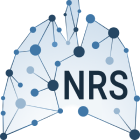Paul Johannesma received NRS Travel Grant
Paul Johannesma
Phd student
Department of pulmonary diseases
VUmc, Amsterdam
Recently, the Netherlands Respiratory Society (NRS) gave me the opportunity to participate in the 2014 CHEST meeting, in Austin Texas, USA.
The CHEST meeting aims at “connecting a global community in clinical chest medicine.”
The meeting is a comprehensive, clinically relevant, and an up-to-date conference for practicing pulmonary residents/physicians and clinically orientated researchers/PhD students.
My PhD projects – under the supervision of prof. dr. P.E. Postmus (pulmonologist) and prof. dr. R.J.A. van Moorselaar (urologist), focuses on the pulmonary and renal features of Birt-Hogg-Dubé syndrome (BHD), an autosomal dominant predisposition for benign skin lesions, lung cysts, spontaneous pneumothorax and renal cell cancer, caused by germline mutations in the FLCN (folliculin) gene.
I started with my PhD thesis on BHD in August 2012. During this period of 2.5 years we focused mainly on the pulmonary aspects of BHD. Clinical manifestations of BHD are variable and spontaneous pneumothorax may be the first and only manifestation of BHD in isolated and familial cases. In a prospective study we showed that current guidelines for PSP (BTS, ACCP) may result in underdiagnosis of BHD. We demonstrated that BHD was the cause of pneumothorax in 7.5% of primary spontaneous pneumothorax cases. Establishing a diagnosis of BHD will improve early detection of renal cell cancer in these patients as well as in affected relatives.
During several sessions on pneumothorax and other pleural diseases, a lively debate was ongoing with the conclusion that current pneumothorax guidelines need revision. New insights, for example on BHD syndrome should be added in future guidelines. The pathogenesis of spontaneous pneumothorax is still unclear and optimal treatment needs probably to be individualized. Many well-known experts from the US and abroad advocated large multicenter studies, and proposed models for the set-up of such studies.
In this CHEST meeting, I presented the results of our study on the pathogenesis of pneumothorax in BHD patients and on the impact of air travel and diving in patients with BHD syndrome, which had not been studied so far. We showed an increased risk for spontaneous pneumothorax during or within a month after air travel or diving among a group of 160 BHD patients.
At this meeting, many pulmonologists were very interested in the BHD syndrome and its underlying pathogenesis. I had the opportunity during the two poster sessions to discuss my results with other pulmonary experts, which gave me some new perspectives on the implications of my data. We used some suggestions in the discussion section of our new manuscript, which will be submitted in December 2014.
In conclusion, this annual meeting, which is highly recommended for pulmonary residents, researchers and pulmonologists, was extremely useful to me. I thank the NRS for the opportunity to discuss my PhD results with an international expert audience.

